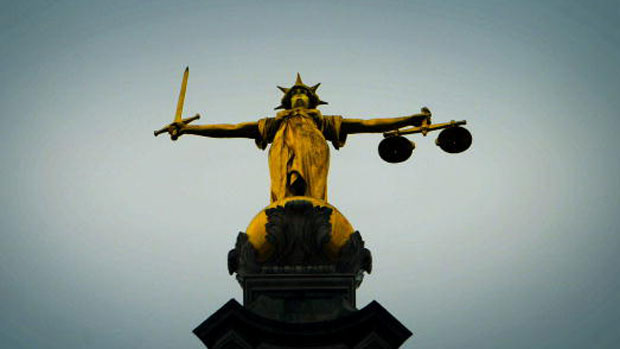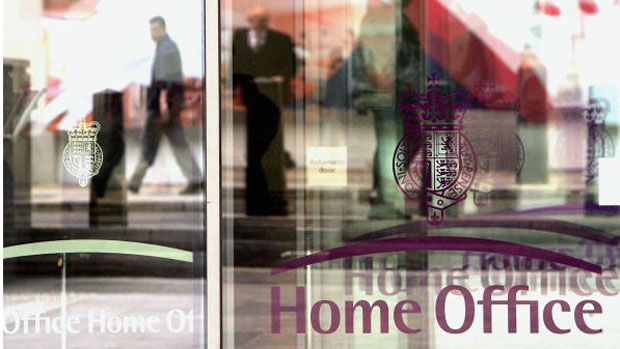Is Sharia law creating a 'parallel UK legal system'?
Sharia law's critics say it discriminates against women, but supporters claim it poses no threat to British justice

A free daily email with the biggest news stories of the day – and the best features from TheWeek.com
You are now subscribed
Your newsletter sign-up was successful
CALLS for a parliamentary review of the scale and impact of Sharia law in the UK have been renewed after guidelines for drawing up "Sharia-compliant" wills were issued by The Law Society.
What are Sharia-compliant wills?
Sharia has strict succession rules and the document explains how to draft a will using those Islamic rules of inheritance, while still remaining valid under British law. The guidelines were issued to lawyers in England and Wales to help them navigate the two different legal systems.
The Week
Escape your echo chamber. Get the facts behind the news, plus analysis from multiple perspectives.

Sign up for The Week's Free Newsletters
From our morning news briefing to a weekly Good News Newsletter, get the best of The Week delivered directly to your inbox.
From our morning news briefing to a weekly Good News Newsletter, get the best of The Week delivered directly to your inbox.
Campaigners have criticised the decision, saying it legitimises religious discrimination against women, while the Sunday Telegraph last week claimed that Sharia law is to be "enshrined in British law" as a result of the guidance.
However, Sam Leith in the Evening Standard argues that British law will not have to change to accommodate Sharia-compliant wills, as it already allows people the freedom to leave what they want to whom they choose.
Sharia law's status in the UK
Sharia has no legal jurisdiction in England and Wales, and "the government has no intention to change this position", a spokesman for the Ministry of Justice told the Daily Telegraph after its sister paper broke the story.
A free daily email with the biggest news stories of the day – and the best features from TheWeek.com
In response to a petition to "ban all Sharia law in the UK" the government said that "if any of the decisions or recommendations they make are contrary to national law (including the Equality Act 2010) then national law prevails".
The Sharia Council acknowledges that it is "not yet" legally recognised by UK authorities, but maintains that it has taken "preparatory steps towards the final goal of gaining the confidence of the host community in the soundness of the Islamic legal system".
What do Sharia courts do?
Many, mostly unofficial, Sharia courts have been set up in Muslim communities to help resolve civil and family disputes using Islamic law instead of local authorities or the formal court system. An estimated 85 courts operate across the country.
A few Sharia courts are recognised as tribunals under the Arbitration Act and provide a form of "alternative dispute resolution". They have the power to set commercial contracts, settle inheritance battles and marital disputes, but only offer "mediation rather than adjudication".
Why do some people oppose them?
An undercover Panorama investigation last year highlighted "disturbing" instances where Sharia courts advised women to return to violent marriages or gave custody of their children to abusive partners.
Cross-party peer Baroness Cox, who campaigns to protect women from religiously sanctioned discrimination, told the Telegraph: "This violates everything that we stand for," she said. "It would make the Suffragettes turn in their graves."
Campaigners have warned that the rise of Sharia could create a "parallel legal system" within Britain's Muslim community. "They're totally unregulated, unauthorised, there's no accountability, and many of them are not operating in accordance with UK law," says barrister Charlotte Proudman.
What about other religious courts?
Some argue that Sharia courts are no different from Beth Din, long-established Jewish community courts in which proceedings are conducted in accordance with English law, but are rooted in religious principles.
The Sharia council claims that campaigns targeting only Islamic courts are "designed to increase the sense of mistrust of Muslims that already exists in wider society."
-
 House votes to end Trump’s Canada tariffs
House votes to end Trump’s Canada tariffsSpeed Read Six Republicans joined with Democrats to repeal the president’s tariffs
-
 Bondi, Democrats clash over Epstein in hearing
Bondi, Democrats clash over Epstein in hearingSpeed Read Attorney General Pam Bondi ignored survivors of convicted sex offender Jeffrey Epstein and demanded that Democrats apologize to Trump
-
 Are Big Tech firms the new tobacco companies?
Are Big Tech firms the new tobacco companies?Today’s Big Question Trial will determine if Meta, YouTube designed addictive products
